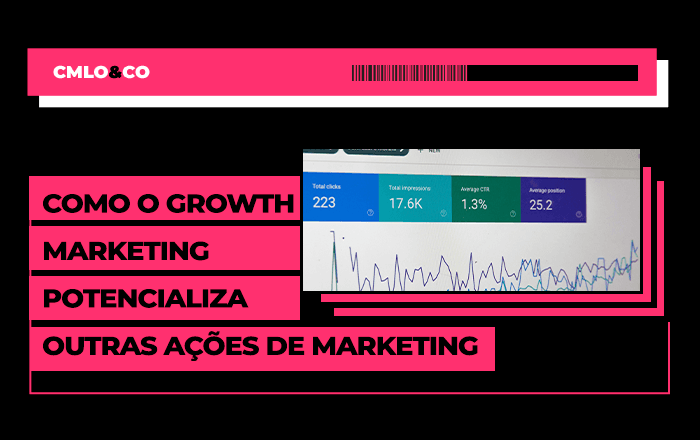Have you ever wondered how big brands manage to stand out in the market and win the trust and preference of consumers? One of the answers to this success is investment in brandingIn other words, building and managing a brand's identity, reputation and value.
But to create effective branding, it's not enough just to have a good name, a beautiful logo and creative advertising. You need to know your target audience, your market, your competitors, your strengths and weaknesses, your opportunities and threats. And how do you do that? Through market research.

In this article, we're going to explain what market research is, how important it is for marketing actions, what types it is and what role a branding company plays in planning and executing the best strategies for your brand. Are you ready?
What is market research?
Also called market research or marketing research, it is a set of techniques and methods aimed at collecting, analyzing and interpreting data and information about a particular market, segment, audience or problem.
Research can be carried out both by companies that are already established in the market and by those that intend to enter or expand their operations, and can have various objectives:
- Knowing the profile, needs, preferences, habits and expectations of consumers or potential consumers of a product or service;
- Identify the size, growth, trends, opportunities and threats of a market or segment;
- Evaluate the performanceThese include the image, satisfaction and loyalty of customers towards a brand, product or service;
- Analyze competitors' strengths, weaknesses, strategies, differentials and gaps;
- Testing new products, services, prices, packaging, names or campaigns before launching them on the market;
- Measuring the impact and return of a marketing or communication action;
- Gain insights and ideas to improve or innovate products, services, processes or solutions.
How important is market research for branding strategies?
After all, what is branding? In a nutshell, we can conceptualize the term as a set of strategies involving the creation and management of a brand's identity, including its personality, values and positioning in the market.
Market research is fundamental to the development of branding strategies because it allows the company to get to know its target audience and its market in depth, identifying their needs, desires, perceptions and expectations in relation to its brand.
Then, based on this data and information, the company can define or redefine its mission, vision, values, purpose, personality and brand positioning, creating a unique and coherent identity that differentiates itself from competitors and connects emotionally with consumers.
In addition, market research also enables the company to draw up a good brand communication plandefining the best channels, messages and actions to relate to your audience.

Main types of market research
There are various types of market research, each with its own specific purpose. Some of the most common include:
- Satisfaction surveys: evaluate customer experience and satisfaction with the brand's products or services;
- Competitor research: analyzes the strategies, products and services offered by direct and indirect competitors;
- Demographic research: investigates demographic characteristics such as age, gender, income and geographical location of consumers;
- Searches for market trendsidentify changes and emerging trends in the market that could affect the brand and its strategies;
- Brand positioning surveys: evaluate consumers' perception of the brand in relation to the competition and the values it represents.
How to do good market research?
Carrying out effective and reliable marketing research requires careful planning and the use of the right methodologies. Below, we list some important steps to consider when conducting a marketing study:
1. Define clear objectives
Before starting the research, it is essential to have a clear understanding of the objectives you want to achieve.
In other words, it means knowing what you want to know or solve with the research, such as understanding consumer behavior, evaluating the acceptance of a new product or service, identifying market opportunities or evaluating the effectiveness of a branding campaign.
2. Select the right research method
There are various research methodologies available, such as online surveys, personal interviews, focus groups, observation of consumer behavior and analysis of secondary data.
The choice between one method and another depends on the objectives of the research, the target audience and the budget available for the study.
3. Draw up the questionnaire or interview script
In order to obtain relevant insights, it is important to formulate clear and objective questions that address the topics of interest in the survey.
The questionnaire or script should be logically structured and include a combination of open and closed questions.
4. Select the sample
The sample is the group of people who will be included in the research, i.e. how many people you are going to interview or observe.
For efficiency and effectiveness, it is important to select a representative sample of the brand's target audience to ensure that the results are accurate.
5. Collect the data
Once the questionnaire or interview script is ready and the sample selected, it's time to collect the data.
This can be done through online surveys, phone calls, personal interviews, direct observation or other techniques, depending on the method chosen.
6. Analyze the data
Once the data has been collected, it needs to be analyzed systematically and impartially. This involves tabulating the results, identifying patterns and trends, and interpreting the insights gained. Statistical and data analysis tools can be useful at this stage.
7. Present and interpret the results
Finally, you should draw up a report or presentation with the main findings and recommendations of the research. They should be presented clearly and concisely, highlighting the main insights and recommendations for branding strategies.
By following these steps and using the best market research practices, brands can gain valuable insights that will help them develop more effective branding strategies in line with the needs and preferences of their target audience.
The role of a branding company in the planning, execution and monitoring of market analyses
Market research may seem simple, but it actually involves a lot of technique, planning and analysis. That's why having the support of a company specializing in branding can make all the difference to the success of your strategy.
A branding company is able to conduct market research professionally and carefully, guaranteeing the quality and validity of the data collected. In addition, they can help turn this data into insights and creative solutions for your brand, for example:
- Creating or redesigning your visual brand identity;
- Developing or reviewing your value proposition and positioning;
- Drawing up or updating your brand manual;
- Planning and execution of communication and marketing campaigns;
- Monitoring and managing your brand's reputation.
- Among other important actions.
If you are looking for a branding company experienced and dedicated to helping your brand stand out in the marketplace, you need to get to know CMLO&CO. With a talented team of marketing and advertising professionals and a customer-centered approach, we can help your company reach its full potential.
If you want to find out more about CMLO&CO's solutions and how we can help you carry out market research and create incredible brand management for your company, don't waste time and get in touch now.
Also take the opportunity to read this article: 7 reasons to invest in brandingYou will discover the benefits that this strategy can bring to your business.





